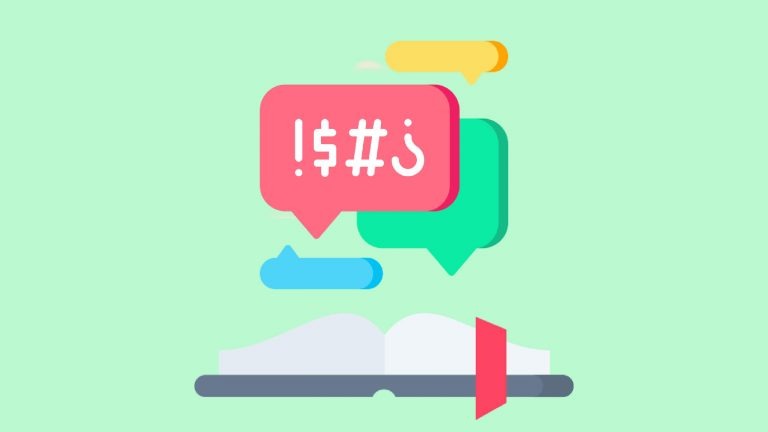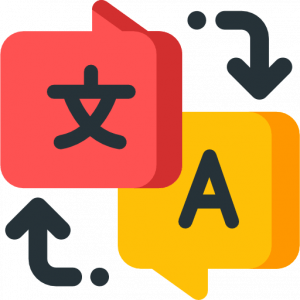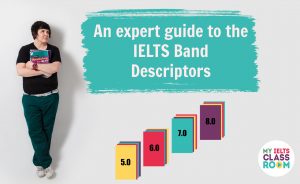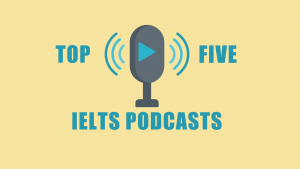
Learning vocabulary for IELTS
I have always found it interesting that many students are fixated on learning vocabulary for IELTS. If you asked my students what area they should focus on to improve their score, almost all would say lexis, and yet in my experience, vocabulary is rarely, if ever, their true problem area. In fact, for many students that work with us at My IELTS Classroom, the focus is more on learning to control existing vocabulary than expanding it with new words (and if this sounds like you, you can read this blog post about common mistakes with lexical resource).

However, what if lexis really is a problem area for you?
- What if you do not have enough topic specific vocabulary to discuss the essay topics in depth?
- What if you cannot follow the listening or reading passages because you cannot understand key words in the question?
- What if you find you get tongue-tied when trying to discuss the abstract topics in Speaking Part 3 because there are gaps in your vocabulary?
Well, then you should definitely include some vocabulary acquisition as part of your IELTS preparation. However, what is the best way to learn new lexis? And how much can you realistically learn in one month, or two, or six? That is what Nick and I will be discussing on this week’s podcast! Join us as we combine our experience teaching with the results of academic research to make learning vocabulary for IELTS as easy for you as we can.
Below, you can find a summary of the episode, which includes all of the links to useful materials and the times of each part of the discussion (so you can go directly to the part you want to listen to) 🚀
- Subscribe to My IELTS Classroom podcast on Apple podcasts here
- Subscribe to My IELTS Classroom on Google podcasts here
- Become a Patreon to gain access to extra BONUS episodes here

An introduction to Learning Vocabulary for IELTS
It is absolutely natural for language learners to have a wider passive vocabulary than active one. You will find that you will be able to recognise far more words than you can actually produce, which is why the language you can understand in the reading exam is of a much higher level than that which you can produce in speaking or writing.
Why is that though? What is it that makes some words stick in our heads more easily than others?
Well, there are a number of answers to that question. The first is pronounceability. Words that are easy to pronounce are easier to remember. I guess that makes sense as part of “remembering” a word is being able to speak it.
Another factor is how similar the word is to other words you are learning. If you are learning a list of words that sound the same, then they can quite easily become confused. Many students confuse “bought and brought” or “lose and loose” or “patients or patience” usually because they are spelt and pronounced in similar ways. However, even words that start with the same letter or have the same consonant cluster can be confusing.

The type of word that you are learning may also affect how easy or difficult it is to remember. In English, we have content words (nouns, verbs, adjectives, some adverbs) and function words (prepositions, conjunctions, fillers, articles, etc). Even though there are almost an infinite number of content words for language learners to learn (I mean, who has memorised the whole dictionary?!), many students actually find that it is the function words that are harder to remember despite the fact that they appear in speech more frequently.
This may explain why so many IELTS learners struggle with dependent prepositions. The main “content” word is always remembered, but the lesser important “function” word is often overlooked. This suggests that you may need to repeat function words more often than content words in order to commit them to your long-term memory.
Should I translate when learning vocabulary for IELTS?
Good question. I have always been quite strict in my classes about translating. My personal feeling is that students who rely on translations tend to progress more slowly as they are unable to “let themselves go” and immerse themselves in the language. There are, for example, some words that have no translation and I have always thought that finding an instant translation removes the time that students spend pondering on a word, and therefore it is forgotten more quickly.

However, the results of research suggest that for lower-level learners the opposite might be true. Research by Lado, Baldwin and Lobo (1967) found that the presence of a native language when explaining a new foreign word was better than using the foreign language alone. It appears that in the initial stages of learning of a new word, a translation is more meaningful because it has many more associations for the learner than a known synonym in the foreign language.
However, this is only true for lower-level students. Those who already have a good level of language should already have built new “associations” and so the translation is not necessary. My advice to any student targeting a 6.0 or higher in IELTS would, therefore, be to step away from translating and try to build new associations in English. Doing this will make it quicker and easier for you to recall lexis when you need it.
Want to know how the examiner will apply the band descriptors when marking your IELTS essay?
Then download a copy of our FREE e-book, which explains how each of the four marking criteria is applied and includes the most common errors made by test-takers. Just click here for your copy.

How many words can I remember and how long will it take?
Good question. This will depend on your aptitude for languages but it seems that somewhere between 4 and 29 words an hour, with 17 being the average. In general, though, I think that many IELTS learners over-estimate their ability to commit new words to memory. Even if you can learn 20 words in one hour, I don’t think that it follows that you can learn 200 in ten as the human brain has a limit capacity for new information.
What is interesting is that we seem to forget words quickly rather than slowly. By this, I mean that if you are to forget a word, you are more likely to forget it immediately rather than after a long period of time (look at the research below). This suggests that you should repeat new items very soon after you first study them, before too much forgetting can occur. After this, you can space out the repetitions further apart as you are less likely to forget the new word.
The Research
Thorndike (1998) found that learners could average about 34 German-English word pairs per hour (1,030 words in 30 hours). The least efficient of his learners averaged 9 per hour (380 words in 42 hours) and the most efficient 58 per hour (1,046 words in 18 hours).
Anderson and Jordan (1928) measured recall immediately after learning, after one week, after three weeks and after eight weeks. The percentages of material retained were 66%, 48%, 39% and 37% respectively.
The two methods for learning vocabulary for IELTS
Broadly speaking there are two approaches to learning vocabulary: direct and indirect.
- In direct vocabulary learning, a conscious effort is made to learn vocabulary either in context or in isolation, for example, by learning lists of word forms and their meanings, or by doing vocabulary learning exercises, or by studying affixes and roots or words.
- In indirect vocabulary learning, new words are learned incidentally while reading or listening, usually as the result of information provided by the context by listening to podcasts, or watching TV, or having conversations.

Direct and indirect methods embody opposite philosophies, with neither being “better” or “worse” than the other. In fact, I would suggest that most successful learners employ both strategies when learning vocabulary for IELTS. Let’s then look at both methods to consider how you can use them in your IELTS preparation.
The Research
Direct strategies at pre- intermediate level can lead to higher achievement of vocabulary storage in reading comprehension. Sixty students were selected and assigned into two experimental groups (A & B) based on a vocabulary pre-test. During the study, group A was taught vocabulary through direct strategies while group B was taught vocabulary through indirect strategies. At the end of the research, all the participants were given another vocabulary test. The results indicated that the direct group (A) outperformed the indirect group (B).)
However, by far the bulk of vocabulary learning is indirect. No language course could teach all of the vocabulary required to read unsimplified material with ease, and evidence shows that large quantities of vocabulary can be learned indirectly. Saragi and others found that after reading a novel, learners could recognize the meanings of 79 out of 90 new words tested even though the learners had not been able to refer to a dictionary while reading and were not expecting a vocabulary test.
Learning vocabulary for IELTS using a direct approach
Using the direct approach to vocabulary learning means actively taking out time to learn new words. The obvious and most simple way to do this is to create flashcards. If you do this, then I would recommend that you consider the following points to make them as effective as possible:
- Put the word you are trying to learn into a sentence or context – words do not appear on their own and using them actively in a sentence will help to more fully understand their meaning.
- Note any collocations – the highest-level lexis are often phrases not single words. Make a note of any prepositions or adjectives or adverbs that are used alongside the word. In fact, why not make flashcards with the collocations missing instead of the main word. For example, you can make a card that says “The manager _____ ______ criticism _________ for the decision”. Do you know the missing phrase………..?)
- Learn vocabulary in sets – if you are actively focussing on vocabulary, it can help to work systematically. The easiest way to do this is to focus your attention on one topic at a time. IELTS makes it easy to do this as they recycle the same topics again and again. You can read more about the common topics here.
- Use synonyms and antonyms – one of the best ways to give a word context and meaning is to think of words with a similar meaning or an opposite one.
- Learn how to recognise prefixes and suffixes – like all languages, English is systematic. Most words of the same class finish with the same range of suffixes. Nouns, for example, often end in -ness / -tion / – ity for example, whereas adjectives end in -ous / -ive / -ful. In the same way, there are prefixes in English with a specific meaning (pre = before / over = too much / anti = against) This is just a small sample of the range of suffixes and prefixes, but hopefully it is enough to see that knowing what “words look like” can help you to remember their meaning. You can download a useful guide to prefixes and suffixes here.
- Use images – as your level of English improves, you may find that the number of images that you can use to represent a word falls. However, if there is a chance to use picture alongside a word, you may find that it accelerates the time it takes to remember it, especially if you are a visual learner (which you should know if you are using metacognition)
You should also consider how often you look at your flash cards. As we saw above, it is important to look at the new words and phrases often when you are at the initial stage of learning. Then, you can start to space out how often you review the word to help transfer it from your short-term to your long-term memory.
The amount of time that you should wait between looking at cards is not fixed, but a commercial flashcard program called SuperMemo found that it was better if the amount of time between reviews gets longer as your memory gets stronger each time you successfully recall it. Based on this, you should wait longer and longer between reviews — so after seeing a question for the first time, you may wait 3 days, then 7, then 15, and then 45 days, and so on.
Use Anki
One great free resource that you can use to build a bank of flashcards for IELTS and then review them at space intervals is Anki. Just like traditional flashcards, Anki lets you you write a question or gapped sentence on one side of a card, and the answer on the other. However, unlike traditional flashcards, you can review hundreds of cards in one place, and it will automatically move cards that you have successfully answered to a “check later” pile. Plus, you can also use other students’ decks of cards and share yours with your friend.

In 1972, a German scientist called Sebastian Leitner popularised a method of spaced repetition with paper flashcards. By separating the paper cards into a series of boxes, and moving the cards to a different box on each successful or unsuccessful review, it was possible to see at a glance a rough estimate of how well a card was known and when it should be reviewed again. This was a great improvement over a single box of cards, and it has been widely adopted by computerized flashcard software such as Anki.
Learning vocabulary for IELTS using a indirect approach
Not all lexis learning has to happen directly. You may find that you pick up lots of new words incidentally as you are reading newspapers, listening to podcasts, or talking to friends. For many students, this may happen in parallel to direct learning, but you may be one of those students (like Nick) who is able to learn only using the indirect method.
If you are an IELTS student who likes learning in an indirect way, then I would encourage you to learn from high-quality sources such as professional podcasts and newspapers, rather than specialist IELTS websites that offer “model essays”, I can see the attractiveness of using other people’ essays as a short-cut to find relevant lexis, especially if it is labelled as Band 9.0. However, 99% of the resources that I see online are not reliable and the level is much closer to a 6.0 than a 9.0. You would be far better off reading articles on IELTS-friendly topics or listening to podcasts from the BBC or NPR to gather lexis naturally.
In fact, if you are learning in this way, you probably won’t need anything more from me than a list of good IELTS podcasts to listen to – you are welcome!

Wait – I have one more good idea for you. My favourite way of teaching lexis is to tell students to learn words as they need them. For example, if you are writing an essay and find that you cannot express your ideas as clearly as you want to, what words are you missing? Find those words and put the into action immediately (and maybe add them to your flashcard bank?) You can do the same with speaking – answer the questions as best you can until you hit a lexis wall, and then go find the words you are missing to keep going. Is this a genuine indirect approach? Maybe maybe not – but it is a good one!
Do you prefer the direct or indirect learning method? Have you got a bank of Anki cards that you would like to share with our students? Do you have another way of learning lexis that you think other students could benefit from? Tell us in the comments!
